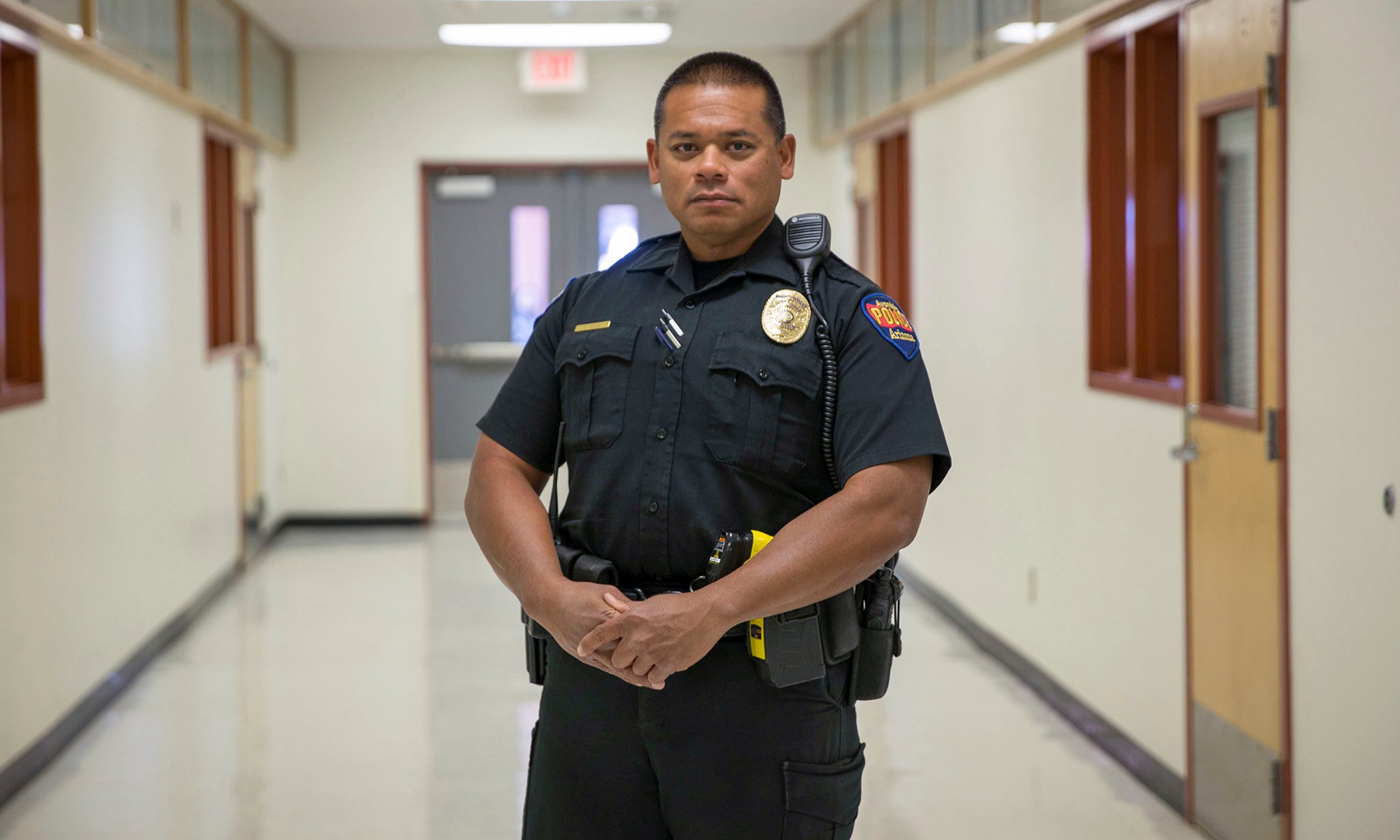There weren't very many SRO's around until the 1990's in the wake of the Gun Free Schools Act of 1994 combined with the the Columbine High School Shooting in 1996. Prior to these events there were policies known as 'Zero Tolerance Policies' that were implemented to deter misbehavior in schools. However, this policy may have turned out to hyper criminalize students for minor infractions instead of deter them. Prior to officers in school, school administrators were the ones that had to deal with misbehavior before SRO's and often times this kept students out of the Juvenile Justice system.

School administrators may believe that the SRO in their school has reduced misbehavior. But on another hand we have statistics that tell us these officers are getting them on track to be apart of the criminal justice system for minor offenses. So are the schools not safe or are officers being to strict with students? Furthermore, according to the National Center for Education Statistics in 2013 only 5% of serious disciplinary actions have involved possession of a weapon and yet there's a high rate of expulsions especially in disadvantaged areas. Some may suggest more SRO's are needed in schools, but I like this viewpoint from the Denver Post, "some lawmakers say they want the funds for safety training and not more armed officers." To offer a solution, if SRO’s focused the same amount of time on law enforcement as education, perhaps then SRO’s are making schools much safer. Greater trust between police and students may result as well. I wonder what exactly is safety training? Is it training the officers or the officers training the faculty and staff of the school to handle misbehaving students?
Citation:
Lynch, Caitlin G., Randy R. Gainey, and Allison T. Chappell. "The Effects of Social and Educational Disadvantage on the Roles and Functions of School Resource Officers." Policing, vol. 39, no. 3, 2016, pp. 521-535. ProQuest, http://0-search.proquest.com.patris.apu.edu/docview/1826809242? d accountid=84
Photo: www.cronkitenews.azpbs.org/wp-content/uploads/2018/04/sro3main-2000.jpg
Ben,
ReplyDeleteI find this blog post to be very interesting. I had SRO's at my high school and had no idea why they were there. I really like how much information was compacted into the piece. It really opened my eyes to why they are in schools. When reading your post so many questions came flooding into my head why aren't we providing SRO's with proper training? What is something we can do to make people understand they are here to help not make things worse? I agree with your post on why they are beneficial to our schools they help with discipline, schooling, and they can also help emotionally to students by providing someone they can trust and talk to. Over all you have a great start to the blog and am excited to read your next posts. Thanks for sharing.
-Alina Fuentez